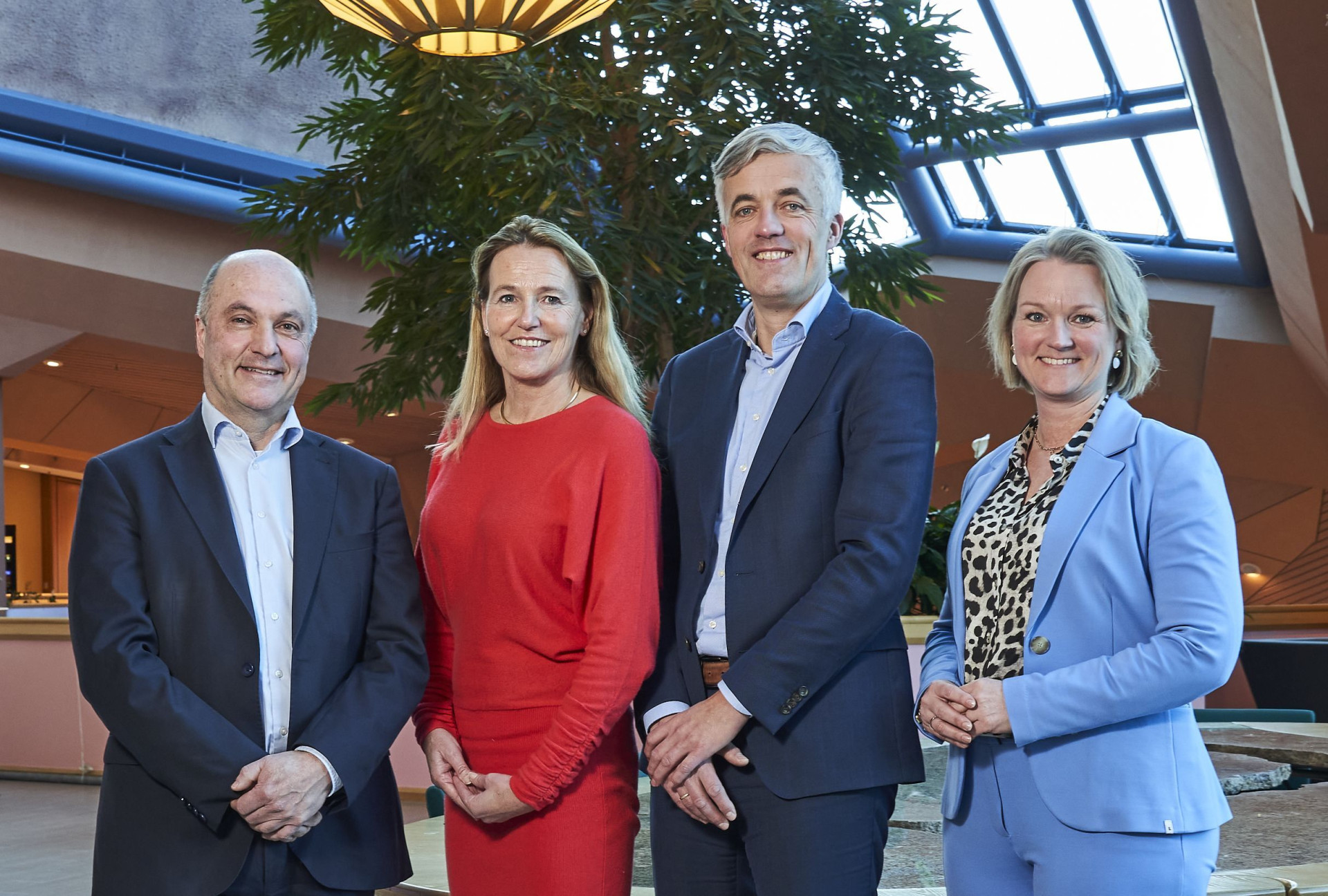Foreword by the Executive Board
Foreword by the Executive Board
In the first half of 2024, Gasunie continued steadily building on its energy transition projects. There were milestones to celebrate at Porthos, and the integration plan for the extension of the WarmtelinQ waste heat pipeline to Leiden was finalised. These were all significant steps on the way to realising a climate-neutral society in 2050.
At the same time, in recent months it became abundantly clear just how important the role of natural gas and natural gas infrastructure is in the current energy system. Norway has taken over Russia’s position as the main source country of natural gas imports and so markets react nervously to even minor disruptions in the supply of Norwegian gas. This year we expanded our transmission system in Germany, with the effect that the country can now import LNG on its own for the first time and distribute it without problem to domestic customers. In the Netherlands, June saw us welcome the 100th tanker delivering LNG at the port of Eemshaven.
Safety is not open to negotiation at Gasunie: All people who work for Gasunie must be able to return home safe and sound at the end of their day. Unfortunately, our ‘accident KPI’ (total reportable incident rate) is still above the threshold value, meaning the number of accidents occurring on the job is unacceptably high. We have a programme in place with firm actions aimed directly at improving our safety performance.
The energy transition has had setbacks and been volatile in certain aspects. Congestion on the Dutch power grid has increased to such an extent that in the provinces of Utrecht, Flevoland and Gelderland charging stations can be switched off at peak times, the roll-out of fully electric heat pumps has been put on hold, and market parties are being asked to install gas-fired systems to supply additional flexible power when needed. In the hydrogen supply chain that is starting to take shape, we have recently seen that market parties are also clearly checking out the blue hydrogen options, because the business cases for green hydrogen projects are not yet sufficiently attractive.
Gasunie wants the energy transition to proceed as smoothly as possible. It is important to take the broad energy system into consideration, especially now that electrification is facing delays or hitches in many places. For example, half of all Dutch households could be made more sustainable if the Netherlands were to use the 2bcm of biomethane it envisions producing in 2030 in hybrid heat pumps. And the use of carbon-neutral hydrogen can balance the energy system and this way accelerate the energy transition.
We will continue to need natural gas in the coming decades, to supplement green energy and to serve as a fallback. Until the volumes of hydrogen and biomethane have grown sufficiently, we will need natural gas to power hard-to-electrify industrial processes and generate electricity. At the same time, we want to offer the users of our infrastructure good alternatives as quickly as possible, which is why we have budgeted almost € 8 billion in investments in transmission and storage of hydrogen, CO2, heat and biomethane by 2030.
Like all network operators, for its energy transition projects Gasunie is faced with permit processes that can take five to seven years. Take, for example, the Delta Rhine Corridor project, a new and essential pipeline between Rotterdam and the Ruhr, where it became clear in June that the required permits would be delayed. We call on the new Dutch government to take what was done in the case of the power grid further and implement an accelerated procedure for the expansion of all energy infrastructure.
We have no time to lose. Bringing about a clean energy supply requires unwavering decisiveness and the will to work it out together. Gasunie is taking the lead in connecting parties, making plans and, literally, rolling up our sleeves. We are doing this because new energy opens up a wealth of opportunities. With new energy, together we can bring about a clean future for generations to come.
Willemien Terpstra, Janneke Hermes, Bart Jan Hoevers and Hans Coenen
